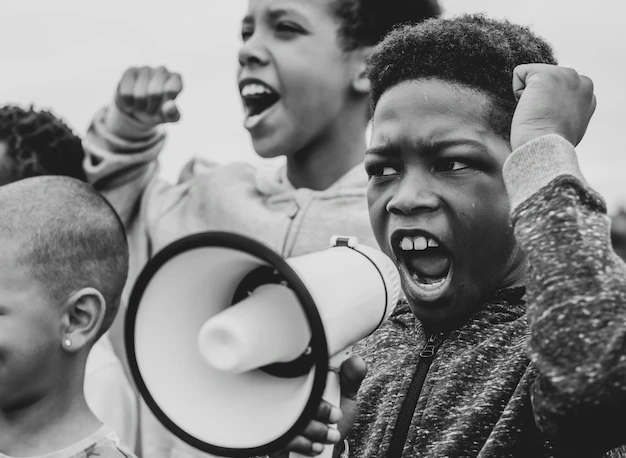Black History And Its Impact On Modern Society: A Reflective Analysis

Black history is not just a segment of American history; it’s an integral part of the fabric that weaves together the story of humanity. At Blackmerch, where we offer apparel celebrating Black history, we recognize the profound impact that African American history has had on modern society.
This article offers a reflective analysis of how Black history has shaped contemporary culture, politics, economics, and the ongoing fight for equality and justice.
The Roots Of Black History In America
Black history in America begins with the painful legacy of slavery, which laid the foundation for the systemic racial inequalities that persist today. The transatlantic slave trade brought millions of Africans to the New World, stripping them of their freedom, culture, and humanity.
The resilience and strength displayed by enslaved Africans and their descendants have profoundly impacted American society, laying a foundation for the principles of resistance and liberation.
The Civil Rights Movement And Its Legacy
The Civil Rights movement in the 1950s and 1960s is one of the most important chapters in black history. It marks a seismic shift in the struggle for equality among all races. Figures like Martin Luther King Jr., Rosa Parks, and Malcolm X became symbols of resistance and change.
Their fight for civil rights brought about quite an important change in the legislation, including that of the Voting Rights Act of 1965 and the Civil Rights Act of 1964, which sought to dismantle institutionalized racial segregation and discrimination. These victories were not just triumphs for Black Americans but were catalysts for a broader human rights movement across the globe.
Cultural Influence And Expression
Black history has profoundly influenced modern culture, particularly in music, literature, art, and fashion. From the Harlem Renaissance to the rise of hip-hop and beyond, African American culture has been a driving force in shaping global cultural trends.
Black artists, musicians, and writers have used their platforms to express their history, struggles, and hopes, influencing generations and sparking important conversations about race, identity, and justice.
Economic Contributions And Challenges
The economic impact of Black history is a story of both significant contributions and ongoing challenges. African Americans have played a crucial role in building the nation’s wealth and infrastructure, yet they have often been denied equitable access to economic opportunities.
Today, initiatives that support Black-owned businesses and address economic disparities are essential in continuing the legacy of Black entrepreneurship and resilience.
Political Impact And Advocacy
Black history has significantly influenced American politics. The struggle for civil rights helped to reshape the political landscape, leading to greater representation of African Americans in political offices and a reevaluation of policies regarding equality and justice. This political awakening continues to influence policies on education, criminal justice reform, and voting rights, among other issues.
Education And The Ongoing Struggle For Equality
The impact of Black history on education has been profound. Efforts to include Black history in educational curricula have been crucial in providing a more accurate and comprehensive understanding of American history. This inclusion not only educates about the past but also inspires future generations to continue the work towards equality and justice.
Education For African American Children

We all know that black history in America is baked with the fire of repression, oppression, and persecution. The students representing the African American lineage did not receive the education like their whiter counterparts until the Civil War.
During that time, the students were kept backward by organized efforts. The educational institutions that governed the structure in America did not cater to the requirements of this oppressed section.
Segregation
When the social education programs were created, African Americans began to take advantage of the free public schools. But the distinctions based on race and color did not end there.
According to a study, it was revealed that in the South of America, almost 90% of American institutions segregated blacks from whites. Segregation based on color and race was indeed one of the major problematic areas that society had to tackle.
Funding Issues
Another major reason, or, say, a problem that was quite pronounced during that time, was the funding issue. Reports galore tell the fact that there has been an imbalance in allocating the financial resources for the education institutions designed mainly for blacks.
The lack of funding was the first step to the discrimination. Experts opined that this unwritten policy stopped black students from getting the knowledge and skills which is necessary to stand shoulder-to-shoulder with their white counterparts. In a way, efforts to bring equality were due among the US black population.
Other Challenges For The African Student
There were diverse challenges for the African American students. The challenge existed in and out of the classrooms and the support for education in African homes. Even many years after the independence, the African communities in America did not realize the need for higher education.
It drew them backward because many of them did not see education rights as an advantage. Moreover, the Southern states in America had teh legal and the policy components, which proved to be a major blow to them. It failed to convince them of the need for education.
Global Resonance And Solidarity
The struggles and achievements of Black Americans have resonated globally, influencing liberation movements in other parts of the world. The fight against apartheid in South Africa, for instance, found inspiration and solidarity in the American civil rights movement. This global impact underscores the universal relevance of Black history in the fight against racial oppression.
As we reflect on Black history and its impact on modern society, it becomes evident that this history is not just a chapter from the past; it is an ongoing narrative that continues to shape our present and future. At Blackmerch, we offer apparel that celebrates this rich history, not only as a tribute to the past but as a commitment to the future.
Conclusion
Black history teaches us resilience in the face of adversity, the power of collective action, and the importance of continuing the fight for justice and equality. Understanding and embracing this history is essential in building a society that truly values and respects diversity and equality for all.
Read Also:













